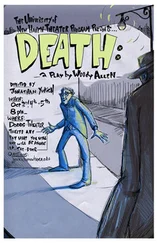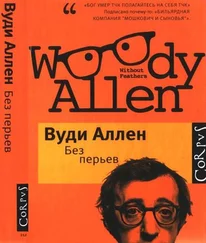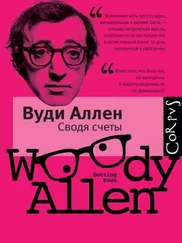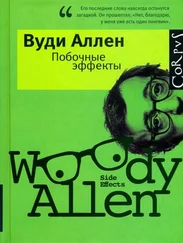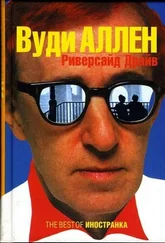I did and he got me talking, and he could tell I knew a huge amount about jazz, and it came out I was a clarinetist. Not knowing what he was letting himself in for, he insisted I bring my instrument and sit in. After many demands, I did one night, and I must say I knew all the tunes. Turk insisted I come back as often as I wanted. The guys in the band were very polite and encouraging, clapping their hands to their ears with the utmost discretion when I blew. When I returned to New York, having played with the Turk Murphy Band, I was no longer satisfied playing alone and got together some guys to play at our houses once a week. The rest is history—but so is the Holocaust.
Years later, on a visit to New York, I invited Turk to sit in with my band playing at Michael’s Pub. He did, and I couldn’t help reflecting on the irony that I had begun sitting in nervously with his band, and now years later he was sitting in, surprisingly nervous, with my band. Then, realizing the vacuous little irony meant nothing, I moved on to another subject. Nowadays as I step forward to take my solo I can only think somewhere two great jazz musicians, Gene Sedric and Turk Murphy, are spinning in their graves.
So I’m about fifteen, a multiple wannabe, failing in school, and as my hormones reach a critical mass I began my love life, or as one might have called it, Theater of the Absurd. Adrift in a sea of testosterone, looking for sex but more pointedly searching for that combination of Rita Hayworth’s sensuality, June Allyson’s supportive devotion, and Eve Arden’s sarcastic wit. This was a difficult package to locate anywhere on the planet Earth much less among the local fifteen-year-olds whose idea of a date was a movie, a soda, and home, getting the key out six blocks from their house lest they shouldn’t be ready to open the door and rocket inside before you could kiss them. There were a few winners I dated, though, those simple, lovely girls, smart, literate, cultivated, fetchingly neurotic, and bored stiff by a bumbling wimp like me who couldn’t hold a conversation on any subject more complex than the Road pictures or how to hit a slider. One girl asked me to take her to the film O. Henry’s Full House . The only O. Henry I knew was a candy bar. Another brought up Swann’s Way , but I was too busy demonstrating how funny it was when Milton Berle walked on the sides of his feet. These girls read and spoke French, and one had been to Europe and had seen Michaelangelo’s David.
“Yes,” I would say, anxious to get on to a subject I can handle, “but when Cuddles Szakáll wiggles his jowls…” There was something about these women; the fact that they were beautiful naturally, that they always seemed to be dramatically and flatteringly in black with silver earrings. They were not commercial. And their smarts were seductive. They were political liberals. Besides the fact that Lincoln had freed the slaves, my knowledge of politics was slim. They could hum the Brandenburg Concertos, and rumor had it they were sexually advanced, although I’d never find out, as dates would often cut the evening short, unconvincingly remembering a pressing appointment in Hindia Belanda or having to feed a pet emu. I took one little amuse-bouche on her request to Greenwich Village. As I recall, she dragged me to a production of Macbeth performed by Thai puppets. Fortunately I awoke before the curtain came down. After, in a snug little drop over candlelight she waxed euphoric over Czeslaw Milosz and the perversion of the dialectic while I mentally undressed her. Then it was off to some brick wall folk club where Josh White sang about chain gangs and a man “takin’ names” while in the back there was a man from the FBI taking names. Finally, back to her house where she darted pell-mell to get inside and avoid my lunging kiss while my nose got caught in the slammed door.
I struggled always to hold my own, but who was this Steppenwolf? And did I agree with Sidney Hook on what? I never saw her again, and because I had fallen in love with her I came to realize that I had some catching up to do; Stendhal and Dostoevsky would now replace Felix the Cat and Little Lulu. So I read. Some of it I liked, some of it I did not. I was not an omnivore who couldn’t get enough literature. Reading was always competing with sports, movies, jazz, card tricks, and just plain not reading because the print looked too dense. I still am taken aback at the cruel spacing of The Magic Mountain . Still, I feared I would never measure up socially if I only knew things like who is strangling all the people in The Spiral Staircase or the lyrics to “Ragmop.” I read the novelists, the poets, the philosophers; I struggled with Faulkner and Kafka and had a worse time with Eliot and of course Joyce, but I loved Hemingway and Camus because they were simple and caused me to feel, but I couldn’t get through Henry James, hard as I tried. I loved Melville, the poetry of Emily Dickinson, and I took the time to learn about Yeats’s life so I could enjoy his poems. I was so-so about Fitzgerald but loved Thomas Mann and Turgenev. I loved The Red and the Black , especially where the young hero keeps wondering if he should make his move and hit on the married woman. I wrote the Broadway comic’s version of that scene in Play It Again, Sam and played it with Diane Keaton. I read C. Wright Mills and The Ginger Man and learned about polymorphous perversity from Norman O. Brown.
I read indiscriminately and there remained great gaps in my knowledge, but I listened to classical music in addition to jazz, and visited museums more and more and educated myself best as I could, not for a degree or any noble aspiration, but so I wouldn’t seem a dodo to the women I liked—although in most ways, I remained a dodo. To this day, the Tin Pan Alley poets are my poets, and nothing in The Wasteland or Pound or Auden moves me as much as Cole Porter’s “You’re not worth the ransom of asparagus out of season.”
I know Edith Wharton and Henry James and Fitzgerald all wrote about New York, but the town I recognized best was described by that sentimental Irish librettist on the sports beat, Jimmy Cannon. You would be shocked to know what I don’t know and haven’t read or seen. After all, I am a director, a writer. I’ve never seen a live production of Hamlet . I’ve never seen Our Town , in any version. I never read Ulysses , Don Quixote , Lolita , Catch-22 , 1984 , no Virginia Woolf, no E. M. Forster, no D. H. Lawrence. Nothing by the Brontës or Dickens. On the other hand, I’m one of the few guys in my peer group who read Joseph Goebbels’s novel. Yes, Goebbels, the gimpy little suppository who flacked for the Fuhrer tried his hand at a novel called Michael , and don’t you think the main character had all the anxiety of the nervous lover anxious for the girl to like him.
As far as movies go, I never saw Chaplin’s Shoulder Arms or The Circus or The Navigator by Buster Keaton. Never saw any version of A Star Is Born . For all my Saturdays at the Midwood Theater, I never saw How Green Was My Valley or Wuthering Heights or Camille or Now, Voyager or Ben-Hur or many others. They Drive by Night , The Uninvited , The Bride of Frankenstein , never saw them. I’m not disparaging these works; this is about my ignorance and why glasses do not make one a particularly literate person, much less an intellectual. And these are just a small sampling of holes in my erudition. To this day I’ve never seen Mr. Deeds Goes to Town or Mr. Smith Goes to Washington .
As with books, there are also a certain amount of films I have seen, particularly growing up, and I’ve seen my share of foreign movies. Still, I think you’d be surprised at my taste. Example: I prefer Chaplin to Keaton. This doesn’t sit well with most critics and students of movies but I find him funnier though Keaton was a better director. Chaplin’s also funnier than Harold Lloyd, who executed great visual gags brilliantly, but I could never warm up to him. I was never a huge Katharine Hepburn fan. Though she was terrific in Long Day’s Journey into Night and Suddenly Last Summer , her best, I find her often very artificial. Weeping was her go-to emotion, whereas Irene Dunne: Loved her. And Jean Arthur. Spencer Tracy always seemed so real except in Pat and Mike .
Читать дальше
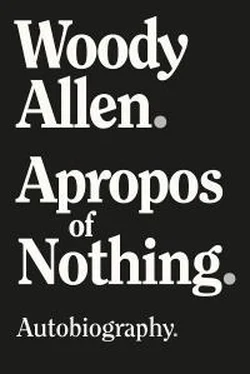
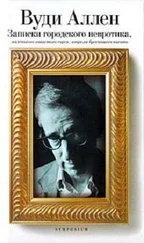
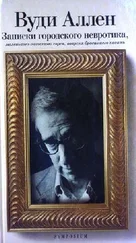
![Вуди Аллен - Парящая лампочка [=Свет плавучего маяка]](/books/94079/vudi-allen-paryachaya-lampochka-svet-plavuchego-mayaka-thumb.webp)
